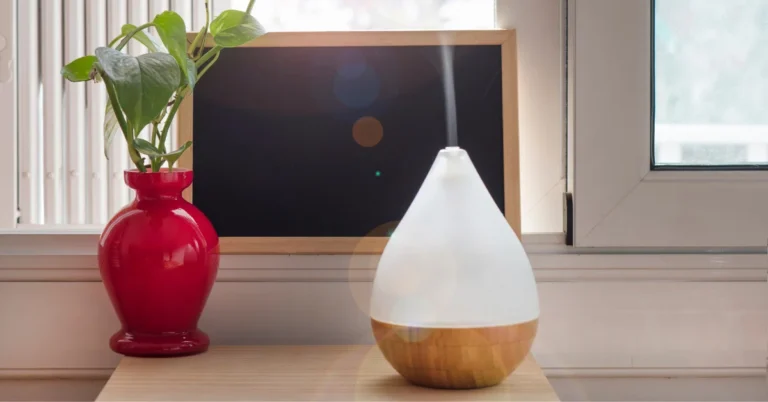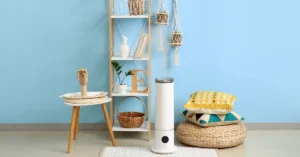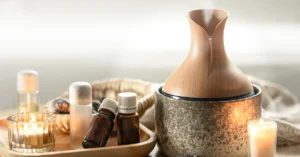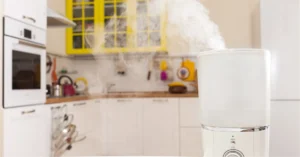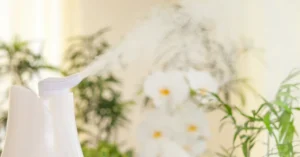Introduction
Pregnancy comes with its fair share of challenges, from morning sickness to swollen feet, but have you noticed how the air quality can make things even worse? If you’re dealing with dry air or congestion, you might be wondering if using a humidifier could help. But then the next question hits: Are humidifiers good for pregnancy?
Humidifiers, especially in colder months, are popular for adding moisture to the air, helping with everything from dry skin to sinus relief. But as an expecting mother, it’s natural to be cautious about what’s safe to use. From worries about air quality to concerns about specific products like Vicks humidifiers, there’s a lot to consider.
In this post, we’ll explore whether humidifiers are a safe solution for pregnant women, break down their benefits, and take a closer look at common products like Vicks humidifiers to answer one of the most frequent questions: Can I use a Vicks humidifier while pregnant? Let’s dive in and clear the air!
Benefits of Using Humidifiers During Pregnancy
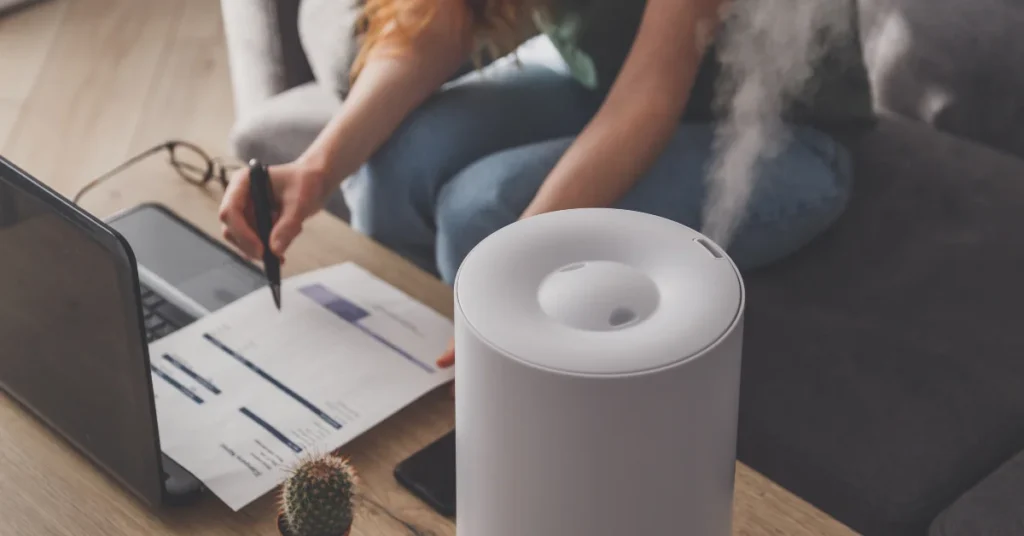
Dry air can be a nuisance, but for pregnant women, it’s more than just an inconvenience. Pregnancy can make you more sensitive to environmental changes, and dry air can lead to all sorts of discomforts like nasal congestion, dry skin, and even difficulty breathing at night. Here’s where humidifiers come to the rescue.
- Relieving Nasal Congestion: Many expecting moms struggle with a stuffy nose or sinus issues during pregnancy, and it’s not uncommon. Known as “pregnancy rhinitis,” this condition is caused by increased blood flow and hormonal changes, making your nasal passages swell. A humidifier can add moisture to the air, helping to soothe irritated nasal passages and making it easier to breathe.
- Easing Dry Skin and Lips: Dry skin and chapped lips are other common complaints during pregnancy, especially in colder months. The extra moisture provided by a humidifier helps keep your skin hydrated, which is great when pregnancy already has your body going through changes that might dry it out. Keeping your home’s humidity at an optimal level can make a noticeable difference in your comfort.
- Better Sleep Quality: Good sleep can be hard to come by during pregnancy, and dry air can make it even harder. If you’re waking up with a dry throat or find yourself tossing and turning due to congestion, a humidifier could improve the air quality in your bedroom. More moisture in the air can help you breathe easier and reduce irritation in your throat and nose, allowing for more restful sleep.
- Reducing the Risk of Coughs and Sore Throats: Dry air irritates your respiratory system, which can lead to coughing or a sore throat—something you definitely don’t want when you’re already uncomfortable during pregnancy. A humidifier can reduce these risks by keeping the air moist and your airways more comfortable.
- Promoting a Healthier Environment: Maintaining the right humidity levels (ideally between 30% and 50%) not only makes you feel more comfortable but can also prevent the growth of mold, dust mites, and bacteria in your home. This is especially important when you’re preparing a safe space for your baby’s arrival.
Safety Considerations for Using Humidifiers During Pregnancy
While humidifiers offer several benefits, it’s essential to use them correctly, especially when you’re pregnant. Here are some important safety tips to keep in mind:
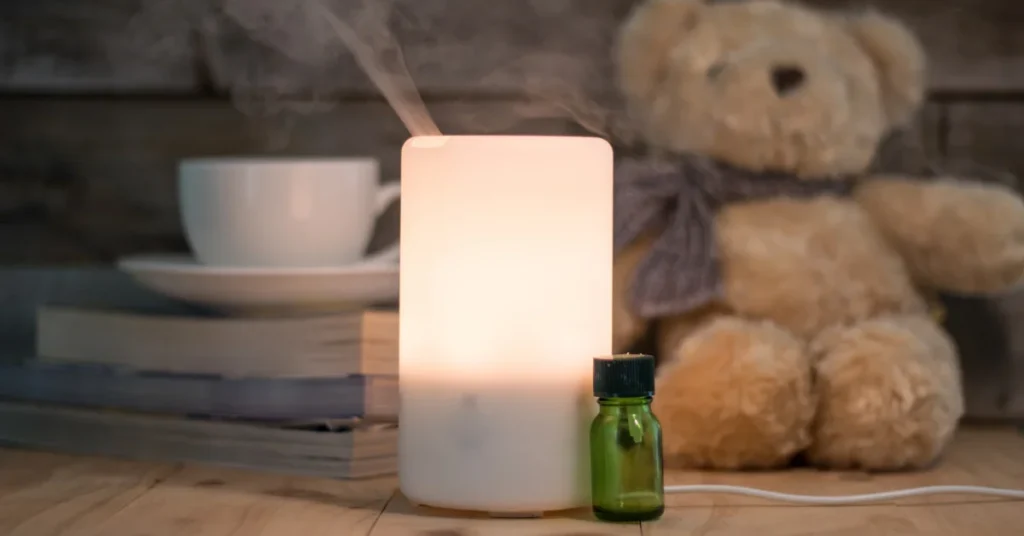
Maintain Proper Humidity Levels
Too much humidity can be as problematic as too little. High humidity levels (above 50%) can create an environment where mold and dust mites thrive, which can negatively impact air quality and potentially cause respiratory issues. Use a hygrometer to monitor your room’s humidity, and aim for an optimal range between 30% and 50%. This keeps the air comfortable without introducing excess moisture.
Clean the Humidifier Regularly
: A dirty humidifier can harbor bacteria and mold, which are then released into the air you breathe. This is particularly concerning during pregnancy when your immune system is working overtime. Be sure to clean your humidifier regularly, following the manufacturer’s instructions, to prevent any buildup of mold or bacteria. If you don’t clean it, you could be breathing in more than just moisture.
Choose the Right Type of Humidifier
Not all humidifiers are created equal. While there are several types available (cool mist, warm mist, ultrasonic, etc.), it’s generally recommended to use a cool mist humidifier during pregnancy. Warm mist humidifiers can get hot and pose a burn risk if you accidentally knock them over. Cool mist models are safer and equally effective at adding moisture to the air.
Be Careful with Additives
Some people like to add essential oils or medicated vapor solutions (like menthol or eucalyptus) to their humidifiers. However, when pregnant, you should avoid using essential oils unless your doctor approves them. Even natural substances can have strong effects, and it’s better to be cautious.
Place the Humidifier Correctly
Position your humidifier in a safe, elevated place where it won’t get knocked over. Make sure it’s not too close to your bed to avoid directly inhaling the mist for long periods, and keep it at a comfortable distance to enjoy the benefits without overexposure.
By following these safety tips, you can enjoy the comfort and benefits of using a humidifier during pregnancy without worrying about potential risks.
Can I Use a Vicks Humidifier While Pregnant?
When it comes to pregnancy, many women wonder about the safety of using specific products, and Vicks humidifiers often come up in conversation. Known for their soothing vapor and menthol-infused mist, Vicks products are popular for easing congestion. But, are they safe to use while pregnant?
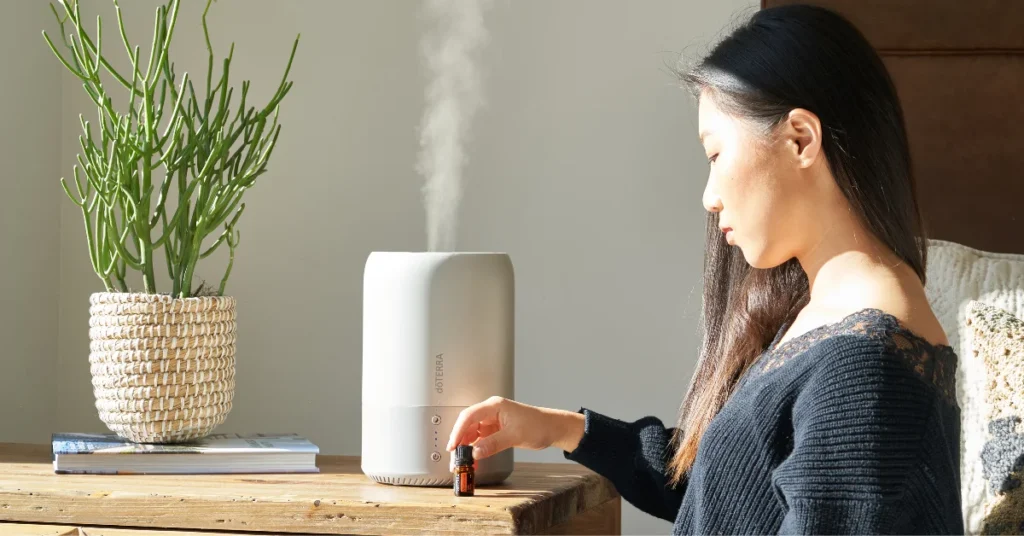
1. The Safety of Vicks Humidifiers
In general, the Vicks humidifier itself is considered safe to use during pregnancy, as it functions just like any other humidifier—adding moisture to the air to help with congestion and dry air discomfort. However, it’s the medicated Vicks products you might add to the humidifier, like VapoSteam or Vicks VapoPads, that require extra caution.
2. What’s in Vicks Products?
Many Vicks products contain menthol, camphor, and eucalyptus oil—ingredients known for their cooling and soothing effects. While these ingredients can provide relief for congestion, pregnant women should be cautious when using any product that is absorbed through the skin or inhaled in large quantities.
- Menthol: Often found in VapoRub or Vicks VapoSteam, menthol is generally safe in small amounts, but its effects can vary from person to person. Always consult your doctor before using menthol-based products during pregnancy.
- Camphor: This is an ingredient in many medicated Vicks products. However, high doses of camphor can be toxic, especially if ingested. For this reason, pregnant women should avoid direct application of camphor-heavy products on the skin or in the air unless advised otherwise by a healthcare provider.
- Eucalyptus Oil: Eucalyptus is a common essential oil that is often recommended for easing respiratory discomfort, but as with any essential oil, it should be used in moderation during pregnancy. Too much exposure, particularly from inhalation over long periods, can lead to dizziness or nausea.
3. What Experts Say
Most health professionals agree that small amounts of menthol and eucalyptus, such as what you’d encounter from lightly using Vicks VapoSteam or VapoPads, are safe for most pregnant women. However, it’s best to avoid using these products frequently or for long periods. Always consult your doctor before using any medicated product while pregnant, especially if you’re sensitive to strong odors or certain ingredients.
4. Best Practices for Using Vicks Humidifiers During Pregnancy
- Stick to the Humidifier Alone: If you’re unsure, it’s safest to simply use the Vicks humidifier without adding any medicated vapor products. The added moisture from the humidifier alone can provide significant relief from dry air symptoms.
- Use VapoPads Sparingly: If you want to use Vicks VapoPads or VapoSteam, limit their use to short periods, and only in a well-ventilated room. Ensure the ingredients don’t irritate your respiratory system.
- Consult Your Healthcare Provider: When in doubt, it’s always a good idea to ask your doctor if it’s safe for you to use menthol-based products during pregnancy.
Best Practices for Using a Humidifier While Pregnant
While humidifiers can provide comfort and relief during pregnancy, it’s important to use them safely and correctly. Here are some best practices to keep in mind to ensure you’re getting the most out of your humidifier while minimizing any risks.
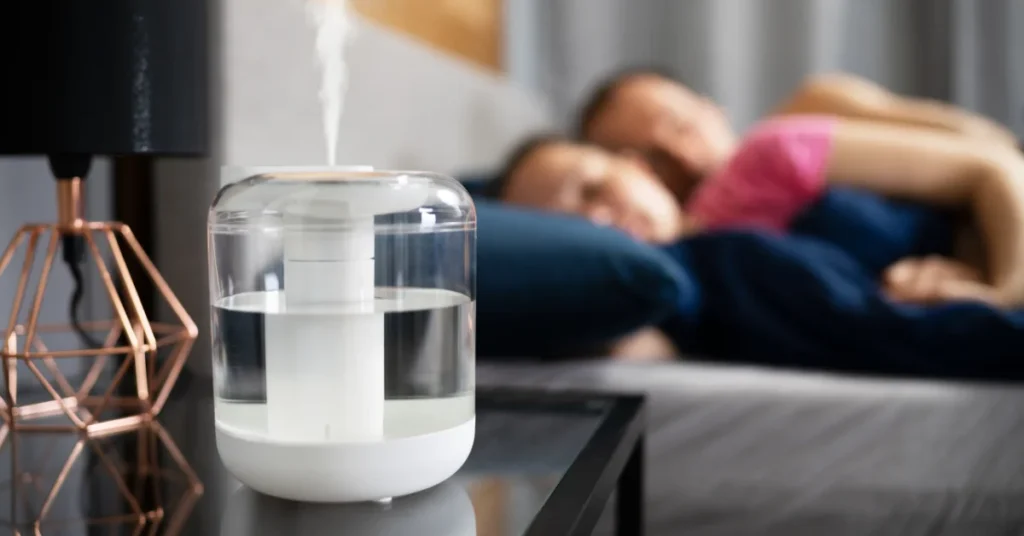
1. Clean Your Humidifier Regularly
Humidifiers can become breeding grounds for mold and bacteria if not cleaned properly. It’s crucial to clean your humidifier according to the manufacturer’s instructions—usually at least once a week. This will prevent any unwanted particles from entering the air you breathe. You can use a mild soap and water solution or a vinegar rinse to disinfect the tank.
2. Use Distilled Water
Using distilled or filtered water in your humidifier can help reduce the buildup of minerals and prevent the release of “white dust” that some humidifiers produce when using tap water. This dust can contain harmful particles that might affect air quality, so sticking to distilled water is a safer option, especially during pregnancy.
3. Don’t Overdo It
More isn’t always better. While you might be tempted to run the humidifier all day and night, it’s important to maintain a healthy balance of humidity in your home. Aim for a humidity level between 30% and 50%. Too much humidity can lead to mold growth or make the air feel uncomfortably sticky, which can be just as problematic as dry air.
4. Keep the Humidifier at a Safe Distance
It’s a good idea to place your humidifier in a well-ventilated part of the room, ideally at least a few feet away from where you sleep. This ensures you’re not breathing in too much moisture directly, which could lead to over-humidification around your bed.
5. Avoid Overuse of Essential Oils
If you’re a fan of adding essential oils to your humidifier, it’s best to limit their use during pregnancy unless advised otherwise by your healthcare provider. While some oils, like lavender or chamomile, are generally considered safe in small amounts, others can be too strong and even harmful when inhaled over long periods. Stick to using a plain cool mist, or consult your doctor about safe oil options.
6. Monitor Your Symptoms
Pay attention to how you feel when using the humidifier. If you notice any new or worsening symptoms—such as headaches, dizziness, or nausea—consider turning off the humidifier and consulting your doctor. Everyone’s body reacts differently to environmental changes, so listen to what yours is telling you.
By following these practices, you can enjoy the benefits of a humidifier without any worries, ensuring both your comfort and safety throughout pregnancy.
Alternatives to Humidifiers During Pregnancy
While humidifiers are a great tool for adding moisture to the air, they aren’t the only option available if you’re looking to improve air quality and ease dry air symptoms during pregnancy. Here are a few alternative solutions you can try:
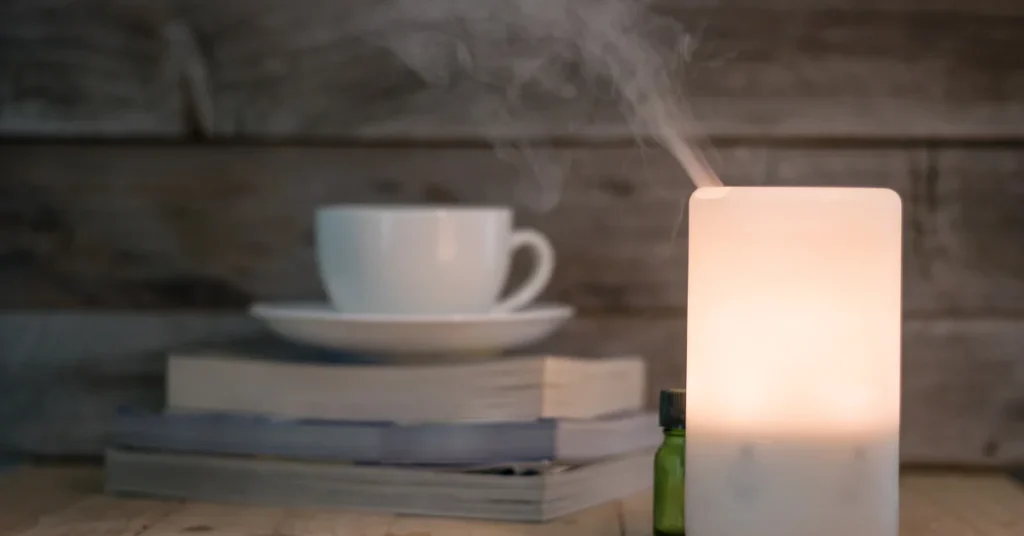
1. Saline Nasal Sprays
If you’re dealing with nasal congestion and don’t want to rely solely on a humidifier, a saline nasal spray can be a safe and effective alternative. These sprays help to moisten your nasal passages and provide relief from stuffiness, without the need for medicated ingredients.
2. Stay Hydrated
One of the simplest ways to combat the effects of dry air is by staying well-hydrated. Drinking plenty of water helps keep your body’s mucus membranes and skin hydrated from the inside out, reducing the severity of dryness-related issues.
3. Use a Bowl of Water
If you don’t have a humidifier on hand, placing a bowl of water near a heat source (like a radiator) can slowly add moisture to the air. While this won’t be as effective as a humidifier, it’s a quick fix for temporary relief in smaller spaces.
4. Wet Towels or Washcloths
Hanging a damp towel or washcloth in your room can also add some moisture to the air as the water evaporates. This method is especially useful in bedrooms where dry air tends to disrupt sleep.
5. Indoor Plants
Certain houseplants naturally add moisture to the air through a process called transpiration, where water evaporates from the plant’s leaves. Consider adding plants like peace lilies or spider plants to your space—they not only help with humidity but also improve air quality.
6. Air Purifiers
While they don’t add moisture, air purifiers are an excellent alternative for improving overall air quality. They can help remove dust, pollen, and other particles from the air, making it easier for you to breathe during pregnancy, especially if you have allergies.
These alternatives, combined with proper hydration and a balanced environment, can make your pregnancy more comfortable, whether you choose to use a humidifier or not.
Conclusion
Humidifiers can be a safe and effective way to ease many of the discomforts associated with pregnancy, such as dry air, congestion, and skin irritation. When used correctly and with proper care, they provide much-needed relief and promote better air quality, both for you and your growing baby. While products like Vicks humidifiers are generally safe, it’s always wise to consult your healthcare provider before using any medicated additives.
As with any decision during pregnancy, your health and comfort come first. Whether you choose to use a humidifier or try one of the alternatives mentioned, listen to your body and don’t hesitate to seek advice if something doesn’t feel right.
